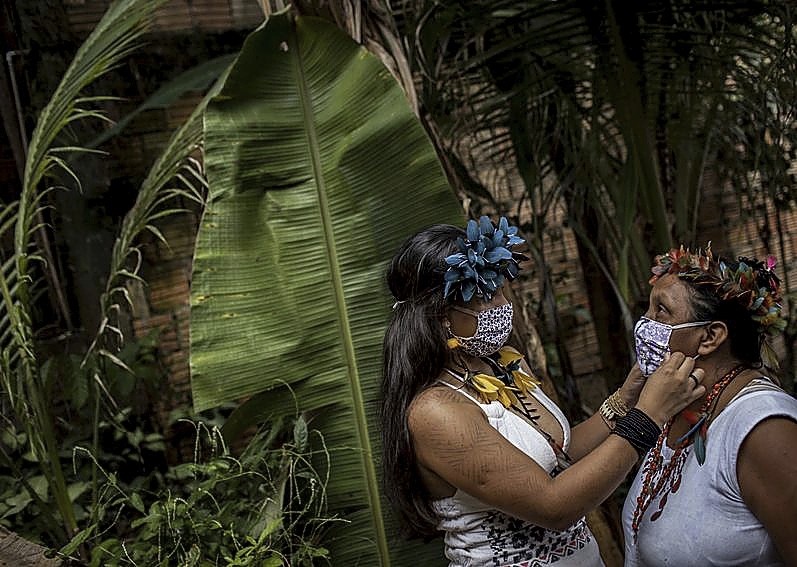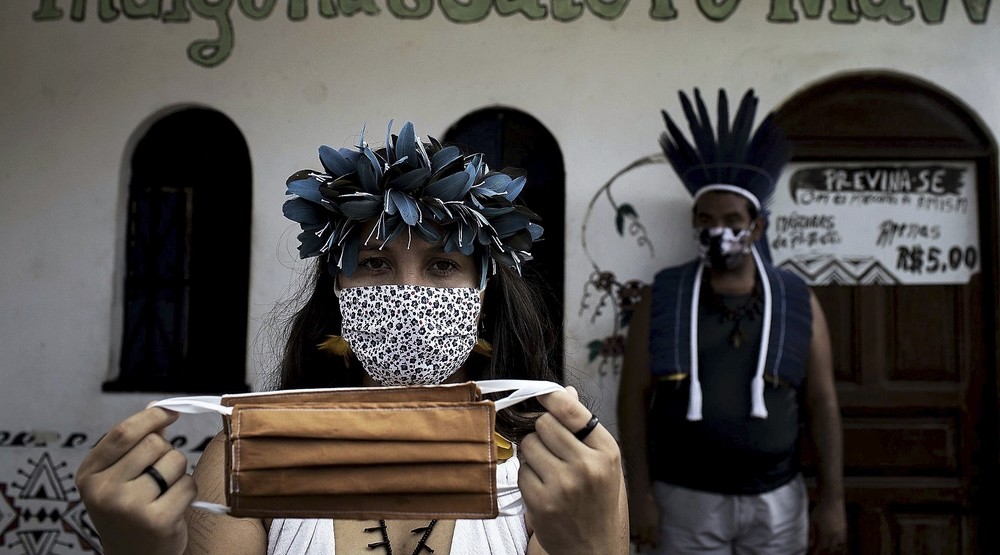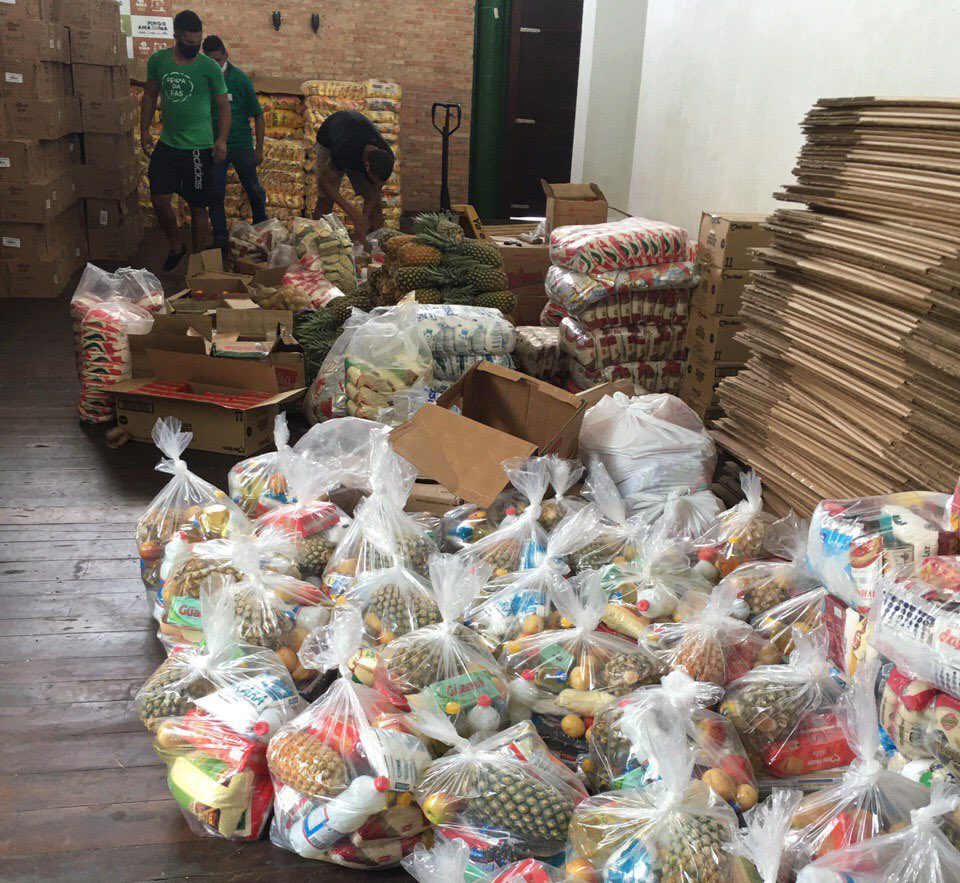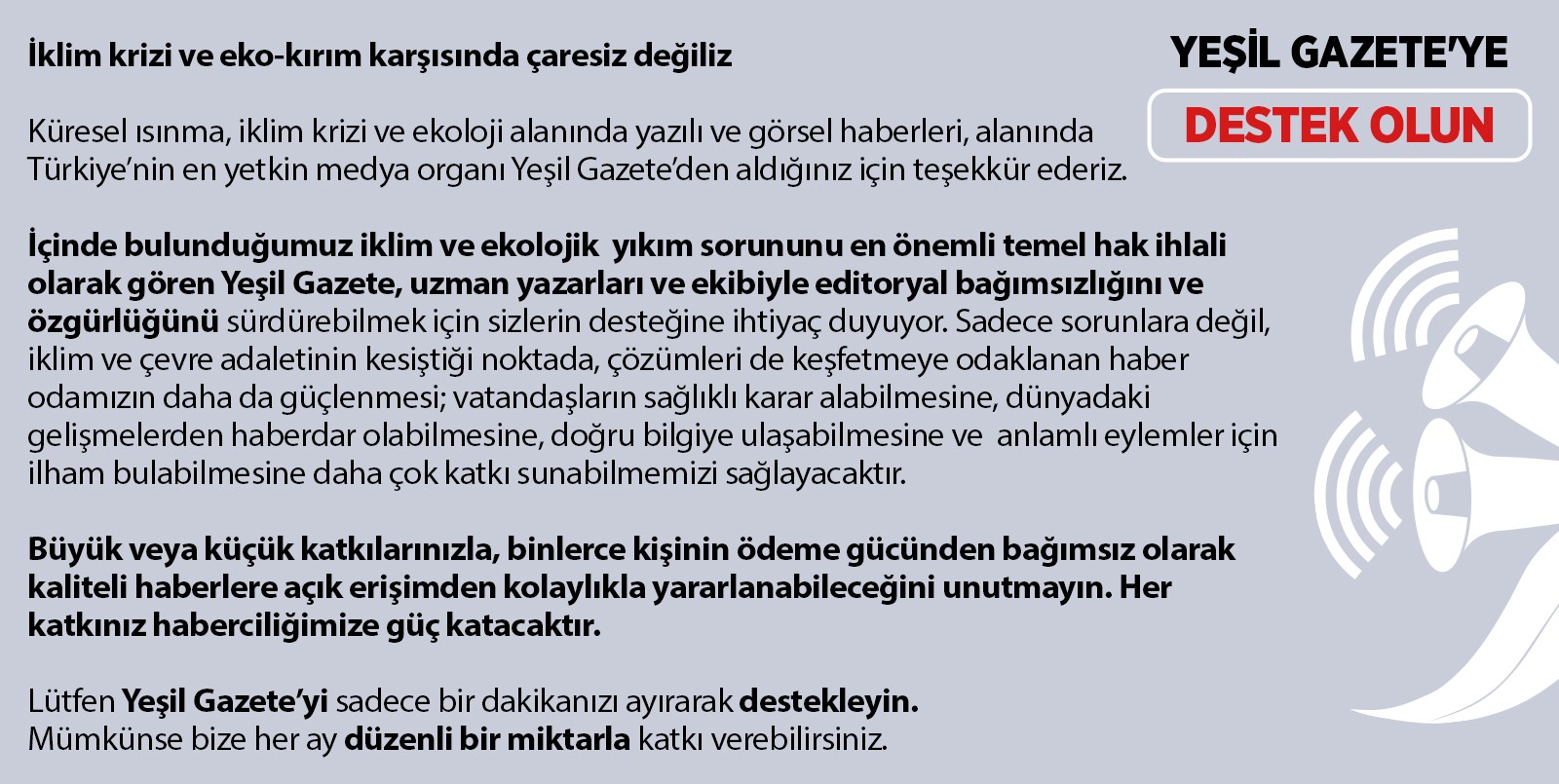Samela Sateré Mawé is a 23 year old Fridays For Future indigenous climate activist from Manaus, capital of Amazonas. Samela, of the Sateré Mawé indigenous ethnic group , is the first member of her family to attend university, where she studies biology. She is one of the 16 activists involved in the SOS Amazonia.
I would like to thank to Valentina Ruas from FFF Brasil for her time and effort for the Portuguese-English translation to make this interview possible.
Atlas: I imagine you have lived the consequences of climate crisis for a long time but please tell us how you became a climate activist
Samela: I became a climate activist since I entered college in 2015, but this has been accentuated since 2019, when I took part in my first climate strike and in 2020, when I got to know Fridays for Future and when I started to help the activists of Fridays for Future Brazil in their SOS Amazônia campaign.
… with the pollution that reaches our rivers and communities and the changing of climate itself, because we can’t predict anymore when will be the rain and drought seasons, besides the smoke of the fires that impairs our breathing.

‘We can’t predict the seasons anymore’
How has climate change affected the Amazonas community in the last few years?
Climate change has been affecting indigenous peoples in a lot of ways, for example with the pollution that reaches our rivers and communities and the changing of climate itself, because we can’t predict anymore when will be the rain and drought seasons, besides the smoke of the fires that impairs our breathing. However, climate change is affecting everyone, not only indigenous populations.
‘Indigenous lands are the most preserved areas’
What are the government’s policies towards indigenous peoples and their lands?
Brazil has 13% of its territory formed by demarcated indigenous lands, but the current government is trying to review this percentage, which means that this land can be unmarked in the future. This is a great impasse that we are waging, because the demarcated areas are the most preserved, so not marking them or reviewing the ones that already exist can be a big problem due to the climate crisis.
People are still prejudiced, don’t respect our territory and invade it, don’t respect our cultures, want to impose their ideology as if their beliefs or gods were more important than ours, kill several indigenous peoples because of the land they want to invade in order to do illegal mining, to hunt and deforestate.

‘People are invading and killing’
We have seen decades of destruction of your land and the violation of human rights in Manaus. Do you have any protection laws to secure the way you live? What do you think is the biggest issue?
In the Brazilian Constitution there is the article 231, which in theory guarantees the right of indigenous people to their cultures, lands and way of life, but that’s not what we see in practice, because the Constitution is not respected.
People are still prejudiced, don’t respect our territory and invade it, don’t respect our cultures, want to impose their ideology as if their beliefs or gods were more important than ours, kill several indigenous peoples because of the land they want to invade in order to do illegal mining, to hunt and deforestate. So yes, there is a non-municipal law and a national article, but they don’t protect the way we live and are not taken into account.
… we need to be respected, as well as our lands, beliefs and cultures, and we need to be consulted in every decision…
‘We need to be consulted in every decision’
If you had a microphone on a world stage, what would you ask of people involved – be it activists, scientists, etc – working on the issues of the climate crisis, land tenure and human rights?
If I had the opportunity to speak at a place where important people could hear me, I would say that we need to be respected, as well as our lands, beliefs and cultures, and we need to be consulted in every decision, being it for example the construction of a highway that crosses our land or the construction of a hydroelectric plant placed in our rivers. I would say that people need to hear us, because we have a lot to tell.
You are a biology student at the moment. What do you want to do in the future?
Nowadays I study Biology at the Manaus’ State University, and in the near future I want to do a master’s degree in education or in the biological area, and finally graduate so that somehow I can contribute to help my people.

You are one of the climate activists involved in the SOS Amazonia campaign. How has Covid-19 affected your people and what is the situation at the moment?
I’m one of the activists working in the campaign, which is already in its second stage, aiming to install internet and medical care for indigenous people of Purus and Upper Negro River, but I’m from a community in Manaus. Covid-19 directly affected my community because we basically live depending on crafts, so with the social isolation and the closure of stores we were not able to commercialise the crafts anymore, being helpless towards this situation, lacking money to buy food, medicines, etc, besides some people getting infected by Covid-19.
There were no deaths though, we treat ourselves with traditional medicine, using herbs, teas and ointments, and we are currently producing masks for our own protection and as a form of income. This was the way we found to protect ourselves and also other people.


